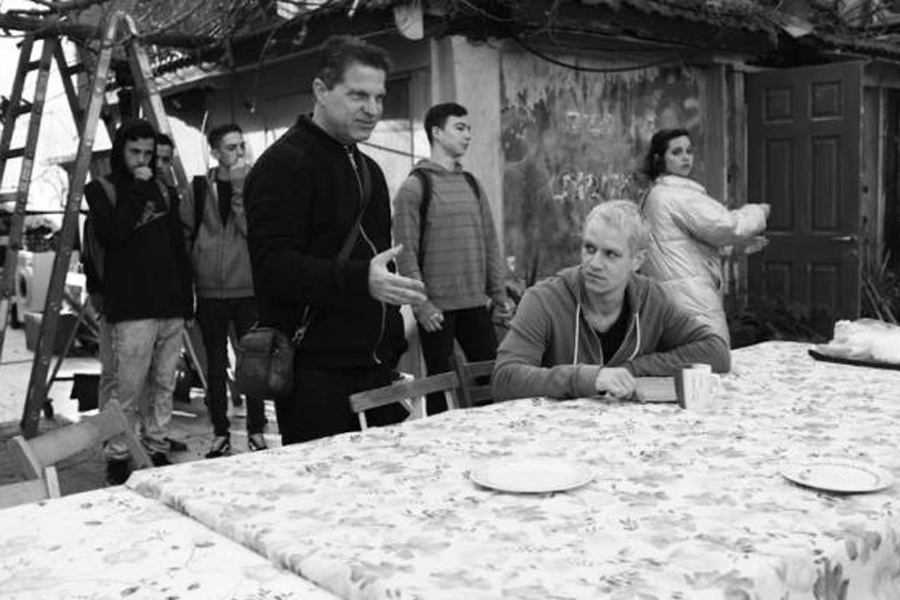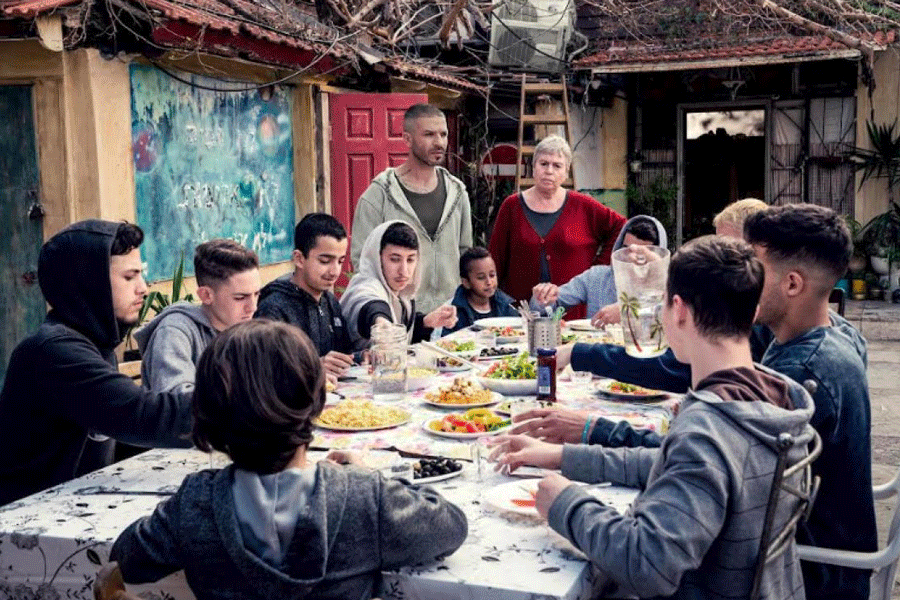How does one receive films from powerful nations that have been, relentlessly over months, making sordid news on the global theatre?
Screen them and watch them, of course. The recent Kolkata International Film Festival (KIFF) had just one entry from Israel — Children of Nobody (Yeladim shel af ehad) by Erez Tadmor — and at the end of the event, it walked away with the Golden Royal Bengal Tiger Award for Best Film.
Tadmor is all smiles, although he is no novice at receiving awards. “I was not able to come to Calcutta because shooting for my next film starts in less than two months,” the 49-year-old filmmaker tells me over Zoom from his house in Ramat Gan in the Tel Aviv district of Israel. However, he hopes to be here for the next edition of KIFF.
Children of Nobody can be easily understood, and loved. It shows how a feisty woman shelters a bunch of delinquent boys in her almost dilapidated home in an upscale area, all the while fighting the system as well as vanishing resources. And how after her sudden death, the eldest of the boys tries to cover up for the rest with tough love, despite his agonies and failings.
The film speaks a universal language — of compassion, human frailties and divisive forces of society. It could be a film from any part of the world, made in any unfamiliar tongue, and still be appreciated.
“I make all kinds of films,” says Tadmore. “Not all are of the same genre. This one is a realistic film.”

Director Erez Tadmor on the sets of his film. Photo: Courtesy Erez Tadmor
Tadmor’s first film was Strangers (2007), which he co-directed. Set against the 2006 Fifa World Cup in Berlin, and the Lebanon War the same year, it shows how a Palestinian woman and an Israeli man strike up a romantic friendship and how they deal with the hostile circumstances.
At least 8,663 children have been killed in Gaza since the October 7 attacks.
Children of Nobody was inspired by real events. Tadmor had heard about a house in Tel Aviv that worked with children; it was closed down by the mayor. “I had to make a film on that,” he says.
Here’s something that brings Tadmor closer home. Three years ago, he was on a trip from France to Greece and Italy, a shared journey with a congregation of award winners from various countries. It was on that trip that he met a director from India — Amar Kaushik, of Bhediya (2022) and Chor Nikal Ke Bhaga fame (2023).
“We have a lot in common... An Indian and an Israeli are very much the same, we became friends. He asked me to watch his films and I asked him to watch my films. He saw Matter of Size (2009) and liked it very much, and said to me, ‘Maybe we can do a remake of this,’ and I said, ‘Okay, try!’”
Matter of Size is a “naturalistic comedy” and was a “big hit”. The film is about a coming out of another kind — overweight people lear-ning to accept themselves. While Art of Waiting (2019) is a romantic comedy based on events from the filmmaker’s life. “My wife and I wanted to have children and we discovered we needed to undergo fertility treatments. So we took the idea into the realm of comedy.”
Wounded Land (2015) is about a suicide bomber who blows up a restaurant in Haifa, but does not die in the event and is taken to a hospital. The terror attack causes an intense chain of events over the course of the night, which is what the film is about. It won Tadmor the Best Director prize at the 2015 Ophir Awards, often called the Israeli Oscars.
Incidentally, there is another film of the same name from another land — Ukraine. This one, put together in 2022, tells the stories of vintners and farmers, who against all odds, keep working and producing during the long-drawn Russian invasion.
So what is the general scenario for filmmakers in Israel — in terms of artistic freedom — and more specifically the offbeat ones?
“You have a lot of freedom in Israel,” he says. “Nobody will tell you to write this way or that way.”
But what if the film goes against the establishment? “They will not stop you from making your film but the audiences will not go and watch them. The audiences don’t care if the film goes against the government; they just don’t want to see the same things that are being shown in the news. However, nobody will stop you from making such a film. Even in Wounded Land, there were a lot of things that people didn’t like to see...”
In the Israel of the 50s and 60s, Tadmor says, there used to be screenings of Indian films at the theatres. Quiz him, and he spells out Salaam Bombay, Monsoon Wedding and Lagaan. The last one is quite a favourite. “I saw it several times, it has a lot of song and dance. It is like a Disney film.”










